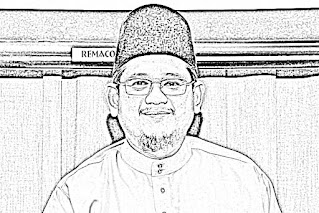
##https://www.qadrishattari.xyz/p/muis-singapore.html##
##https://www.qadrishattari.xyz/p/muis-singapore.html##
Muis
In the last few months, the Malaysian Islamic Community (MIC) has been increasingly criticizing MUIS. Many Facebook posts have been posted by a social activist who is critical of the MUIS council's management. The majority of his posts are targeted at exposing the sloppy management and lack of transparency of MUIS. The alleged corruption and failure to adequately respond to complaints have been highlighted, prompting many to question the integrity of MUIS and competence.
Muis Singapore
The governance structure of the organization is based on a constitutional mandate to advise on Islamic affairs. It is managed and governed by nine members selected by Halimah Yacob (the president of Singapore). The guidelines of MUIS are carried out by the senior management team. Esa Masood, the chief executive officer, is accountable for operational oversight. In this way, the MUIS appears independent of the government, even though it is required to do so.
The MUIS council on governance is comprised of five members, chosen by Halimah Yacob. The five members are accountable for defining the MUIS's policies as well as operating plans. These policies and plans are then put into practice in MUIS by the top management team. Esa Masood has the final say on all operational issues. While it is possible that MUIS is independent but it is a constitutional requirement to provide advice on Muslim matters.
The corruption culture is also facilitated in the MUIS corporate environment. MUIS's top leadership team has been dismissed due to corruption claims. The operating budget for MUIS is $50 million. The financial Muis Singapore decision-makers at MUIS cannot be in any financial position. Its job is to manage the affairs of Islam Singapore and to address the issues. Unfortunately, the company's management is not sufficiently supervised to prevent fraud and puts Muslims in danger.
MUIS's board of governance is a state-run agency that has the constitutional obligation to provide advice on Muslim affairs and is a council of governance. But, MUIS doesn't have an independent structure and is susceptible to criticism from Muslims. The administration is responsible to the MUIS's actions and must refund any money deposited into the estate. In turn the MUIS's management has the power to decide the fates Islamic institutions across a nation.
The MUIS is an official body that is not subject to accountability direct by parliament. The Administration of Muslim Law Act regulates MUIS. Its role is to provide advice to the President in matters related to Islam in Singapore. It also promotes activities in conformity with Islamic traditions and principles. Your government is in support of the MUIS in the event that your country is Muslim.
Recently, there has been a lot of criticism directed at the MUIS in relation to the way it conducts its business. While the MUIS was an official entity for a long time, its actions have been increasingly politicized. Its leadership is mostly concerned with encouraging Islamic culture and religious beliefs. Its goal is to protect the interests of Singapore's Muslim community and to promote Islamic values. The two organizations have been working in tandem for many years to establish an alliance that promotes the rights of Muslims in Singapore.
The Administration of Muslim Law Act governs MUIS. This statutory, independent board advises the President in matters related to Islam in Singapore. It supervises the management of mosques across the country. In addition to being an advocate for Islam in Singapore and the world, it is actively involved in the promotion of Islamic values and traditions within the country. This, in turn, benefits the Muslim community.
MUIS also provides a range of other services available in the country. The Halal Certification Strategic Unit of ISEASMuis was the first of its Halal services. This was in response to the rising demands for Halal products and the necessity to regulate Halal. The MUIS's mission has remained the same throughout the years: to provide services to Muslims throughout the country.
The enhanced scheme was implemented in phases. The transition phase, which was implemented Jan. 31st, will run until June 30, 2018. In the meantime all FHCBs may submit an application for recognition to the MUIS. The applicants who apply in the phase transition of the scheme can only be temporarily recognized until it is fully implemented. Since the establishment of 1979's MUIS, the MUIS Haal Council has been a vital component of the ruling body.